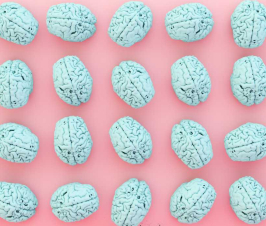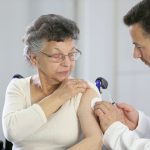Not all Obesity is the Same

A body that is sedentary and fed with junk food will end up unhealthy and usually fat. It stands to reason then that simply eating a healthy diet and moving more is the secret to staying trim. For many people that is true, but for some it isn’t. As science becomes increasingly curious about the mechanisms behind obesity we are finding links to excess weight and the microbiome, plastics in our environment, how well we sleep, when we eat, and the people with whom we surround ourselves. One of the more curious new threads is about the role of certain kinds of viral infection.
Adenoviruses
Adenoviruses are a large class of viruses that cause many common short-lived illnesses like the common cold. There are a few, Ad36 being the best studied, that can have a curious effect on the way our bodies handle fat. Obese patients who have antibodies to this virus (and others like it) are more likely to put on weight, have greater difficulty losing weight, and yet have lower amounts of total cholesterol and triglycerides. This may be one of the reasons that we see obese patients with very healthy lipid biomarkers and why we cannot assume that all obesity is the same. What research has uncovered so far[i] is that these kinds of infection change some of our metabolic settings to increase the uptake of blood sugar as well as create more and larger fat cells.
More to the Battle of Weight Than Diet and Exercise
While it is exciting to have found another contributing link to obesity, science still doesn’t know why it affects some people this way, and not others, nor how to reverse the effects. Right now it is simply good to know that there really is more to the battle with weight that so many people fight than just diet and exercise. Since adenoviruses are common we cannot avoid them, but following good naturopathic principles of health can help keep our immune systems robust enough to minimize infection.
Reference
[i] Lin W, Dubussoin O, Dhurandhar N, et. al. Long Term Changes in Adiposity and Glycemic Control Are Associated With Past Adenovirus Infection. Diabetes Care vol 6, March 2013 p701-709
 Dr. Alethea Fleming, ND is a passionate advocate for naturopathic geriatric medicine. A 2007 Bastyr University graduate, she also earned a certificate in Gerontology from the University of Washington. Dr. Fleming is the owner and lead physician of the Vital Aging Clinic in Anacortes, Washington where she provides primary care to all adults as well as adjunctive geriatric care. Dr. Fleming is active in multiple community organizations as well as a member of WANP, AANP and OncANP. In her off hours, Dr. Fleming can be found hiking the beautiful trails of Fidalgo Island, spending time with her wonderful husband and son, or with her nose firmly in a good book.
Dr. Alethea Fleming, ND is a passionate advocate for naturopathic geriatric medicine. A 2007 Bastyr University graduate, she also earned a certificate in Gerontology from the University of Washington. Dr. Fleming is the owner and lead physician of the Vital Aging Clinic in Anacortes, Washington where she provides primary care to all adults as well as adjunctive geriatric care. Dr. Fleming is active in multiple community organizations as well as a member of WANP, AANP and OncANP. In her off hours, Dr. Fleming can be found hiking the beautiful trails of Fidalgo Island, spending time with her wonderful husband and son, or with her nose firmly in a good book.

















